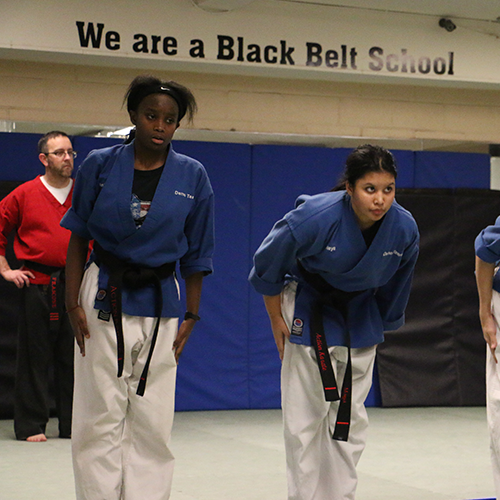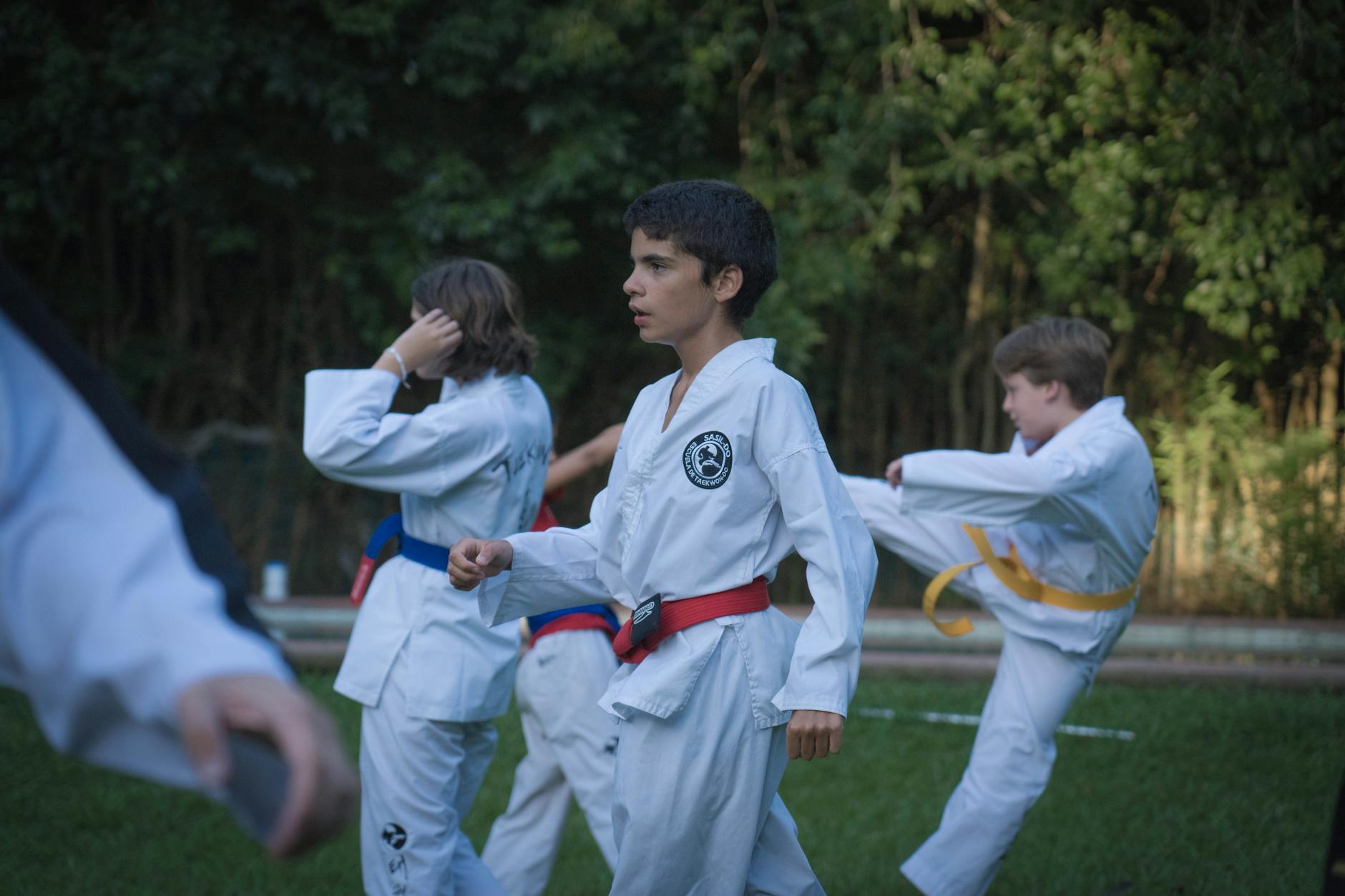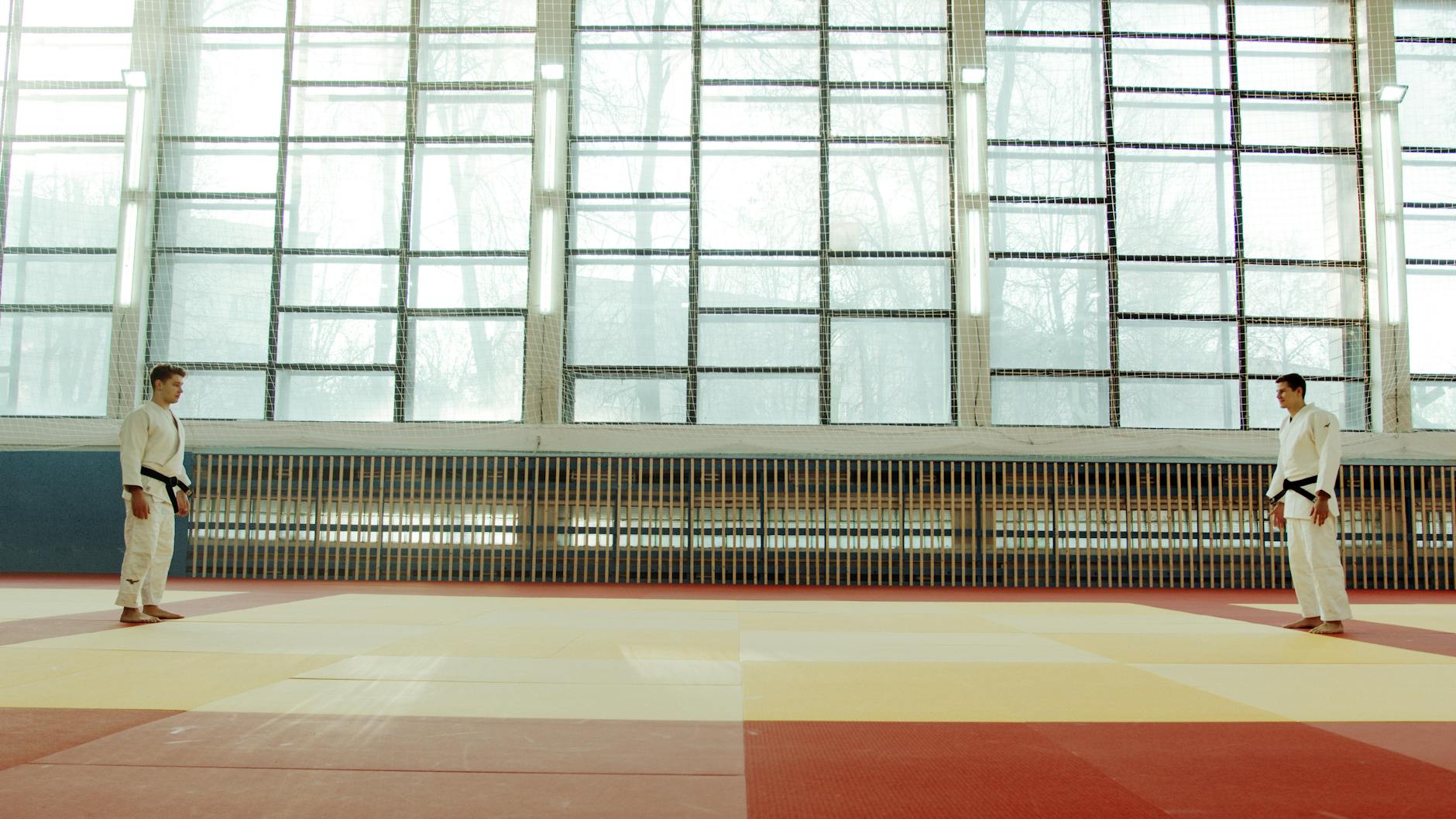Surprising Ways Martial Arts Boost Sleep Quality in Kids and Teens


Kids and teens are facing record rates of sleep problems. From restless nights to trouble falling asleep, sleep issues are now common across every age group. Busy schedules, screen time, and stress only add to the struggle for kids to get the rest their bodies and minds need.
Quality sleep is more than just a mood booster—it fuels growth, learning, and good health. Without enough sleep, young people can slip behind at school, feel low on energy, or even face health problems down the road.
Here’s where martial arts stand out. Beyond self-defense and fitness, consistent training brings real, science-backed benefits to healthy sleep habits. This post highlights how martial arts help kids and teens fall asleep easier, sleep deeper, and wake up ready to take on the day.
How Martial Arts Programs Promote Deeper and More Restorative Sleep
Martial arts offer more than disciplined moves and self-defense skills. They set the foundation for healthier, more restorative sleep in kids and teens. Let’s look at how the powerful mix of physical activity and hormonal balance that comes with martial arts training works behind the scenes to help young athletes drift off faster, stay asleep longer, and wake up refreshed.
 Photo by Artem Podrez
Photo by Artem Podrez
Physical Activity and Fatigue: Setting the Stage for Better Sleep
Martial arts classes are packed with drills, sparring, and skill practice that get the body moving at every level. This is the kind of physical activity that does more than burn calories—it helps reset the body’s internal clock and deepen nightly rest.
When kids and teens practice martial arts, they:
- Engage large muscle groups with moves like kicks, punches, and blocks.
- Sustain high energy output during fast-paced workouts or partner drills.
- Balance physical strength and aerobic conditioning in ways that raise and then calm heart rates.
The result? Students leave class feeling physically spent—but in the best way possible. This natural fatigue helps the body:
- Fall asleep faster (shorter sleep latency)
- Stay asleep longer and more soundly
- Get more out of each sleep cycle
Scientific studies find a strong link between regular, moderate-to-intense activity like martial arts and increased time spent in both deep and REM sleep. Even a single session can help release tension in the body, reduce restlessness, and set the stage for a smooth transition from wakefulness to sleep.
Hormonal Balance and Sleep Architecture
Martial arts don’t just tire the body—they also reset key internal systems that control how we sleep. Research shows that steady martial arts practice can balance hormones that support sleep, especially melatonin (the body’s natural sleep signal) and cortisol (the stress hormone).
When the body gets regular, structured exercise:
- Cortisol levels drop over time. Lower stress hormones mean the brain isn’t left racing at bedtime, so it’s easier to relax and fall asleep.
- Melatonin secretion improves as the body’s internal clock (circadian rhythm) gets trained to recognize rest periods after activity.
- The pattern of sleep cycles—deep NREM sleep and dreamy REM sleep—grows stronger and more predictable.
What does this mean for kids and teens in martial arts?
- Longer periods of deep (NREM) sleep: Especially important for muscle recovery and physical growth.
- More restful REM sleep: Key for memory, mood, and learning.
- Better overall sleep efficiency: More of the time spent in bed turns into real, high-quality rest.
So, by giving kids and teens both a physical outlet and a hormonal reset, martial arts create a reliable path to better, more restorative sleep—night after night.
Reducing Stress and Anxiety: The Psychological Benefits of Martial Arts
Stress and anxiety are major sleep blockers for kids and teens. Busy days, social worries, and screens ramp up the pressure, making it tough for young people to unwind at night. Martial arts do more than just build strong bodies—they quiet busy minds, offer emotional balance, and set kids up for healthier sleep routines. Here’s how martial arts help children and teens calm down after a stressful day and drift off with fewer worries.
Mindfulness in Martial Arts: Calming the Nervous System
 Photo by cottonbro studio
Photo by cottonbro studio
Martial arts classes often begin and end with mindful practices—like deep breathing, guided movement, and short meditations. These routines are not just warmups or cooldowns; they reset the mind and body.
Through mindful movement, kids:
- Focus on what their body is doing right now, helping them let go of worries about school or friends.
- Use controlled breathing, learning to slow their heart rate and shift their body from “fight-or-flight” mode to a relaxed state.
- Practice short meditations, staying present and helping the mind settle before bed.
These habits teach the brain and nervous system how to move from stress to calm. When bedtime hits, the same skills can be used to relax and prepare for deep, restful sleep. Over time, kids develop a toolkit to handle anxious thoughts, making it easier to let go of the day’s stresses and drift off.
Building Emotional Regulation for Healthier Sleep Patterns
Martial arts is more than punching and kicking—it’s about practicing control, patience, and self-awareness. The routines and rituals in the dojo give kids a safe space to manage their feelings and steadily build discipline.
Here’s how martial arts supports emotional balance for better sleep:
- Discipline and routines: Regular practice helps kids set patterns in daily life, teaching them when to be active and when to rest—key for building consistent sleep habits.
- Emotional self-control: Students learn to pause, breathe, and choose how they respond to challenges, rather than react out of stress or anger.
- Stress relief: Physical activity releases built-up energy and tension, which can otherwise turn into racing thoughts at bedtime.
Many martial arts programs use goal-setting, like earning new belt colors, which boosts confidence and gives kids a sense of progress. When kids feel in control and supported, they’re less likely to lie awake worrying. Martial arts helps young people replace sleep anxiety with self-trust and routine, which means bedtime feels safer and sleep comes more naturally.
Social and Behavioral Improvements Linked to Sleep Quality
Martial arts are about more than punches and kicks. The lessons learned on the mat reach far beyond physical skill—they build social strength, encourage friendships, and support emotional health. These changes have a real effect on how well kids and teens sleep. Improved self-esteem, a feeling of belonging, and predictable routines all help young athletes rest deeply at night.
Enhanced Self-Efficacy and Reduced Bullying: Analyze how martial arts training leads to increased confidence and social support—improvements that translate to reduced stress and better sleep quality.
 Photo by Martin.que
Photo by Martin.que
Martial arts classes are built on trust, respect, and teamwork. In every session, kids practice:
- Working with a partner or small group
- Taking turns and listening closely
- Encouraging their classmates
- Learning to celebrate wins—and handle setbacks gracefully
These social basics aren’t just good manners. They are the foundations of confidence and support. When a child believes in their own abilities (self-efficacy), they are less likely to doubt themselves in class or at school. That sense of “I can do this” follows them everywhere—even to bedtime.
Research shows that kids and teens who train in martial arts:
- Show fewer signs of social anxiety and bullying (both as targets and instigators)
- Feel more connected at school and in after-school activities
- Report having more friends and stronger peer relationships
Reduced stress is one of the biggest benefits. With less fear of bullying and a stronger support system, kids’ minds are calmer at night. They take fewer worries to bed, which leads to falling asleep faster and sleeping soundly.
Building Consistent Routines for Healthier Sleep Hygiene: Highlight how regular class schedules and established routines support better sleep-wake cycles.
One thing every martial arts program has in common? Routine. There’s a set time for practice, a clear order to each class, and even rituals for entering and leaving the mat. This structure is a game-changer for kids and teens who struggle to keep a healthy bedtime.
Regular martial arts classes help:
- Set a natural rhythm for each week
- Make it easier to eat, move, and wind down on a predictable schedule
- Train the body to expect rest after physical effort
For many families, martial arts classes become an anchor in the weekly routine. Kids know that after practice comes dinner, showers, and then getting ready for bed. The result is a stable sleep-wake cycle, less rushing at night, and more time to relax. Structured evenings, built on the foundation of class schedules, become a habit that sticks—and healthy habits mean better, deeper sleep.
Martial arts provide both the social bond and structure needed to support healthy sleep habits in kids and teens. When young people feel accepted, confident, and guided by routine, their minds and bodies are naturally ready for rest.
Martial Arts as a Non-Pharmacological Sleep Intervention for Special Populations
Sleep issues are common in kids and teens with neurodevelopmental conditions, especially those with Autism Spectrum Disorder (ASD). Many families try different ways to help their children sleep better, but medications often come with side effects and limited results. Martial arts, particularly judo, offer a fresh approach. Recent clinical studies show that these programs can improve sleep quality and lower stress, all without medication.
Let’s break down how a family judo program has made a real difference for kids with ASD when it comes to sleep.
Case Study: Judo and Sleep Improvements in Autism Spectrum Disorder
 Photo by Artem Podrez
Photo by Artem Podrez
A standout study published in early 2024 followed children and teens with ASD through a 14-week family-based judo program. The group joined weekly 45-minute sessions designed for their needs, blending judo’s physical activity with mindfulness and family support. Researchers tracked their sleep with an Actigraph GT9X, a device that gives solid, objective sleep data rather than relying on just parent or self-reports.
Key outcomes from the study:
- Sleep efficiency went up by about 5%. This means kids spent more of their time in bed actually sleeping.
- Sleep latency (how long it takes to fall asleep) dropped nearly 25%. Kids fell asleep faster—an especially big win for families who struggle at bedtime.
- Wake time after sleep onset fell by around 20%. There was less tossing and turning in the night.
Sleep duration itself didn’t really change, but the quality of sleep improved. Kids didn’t necessarily sleep longer, but the sleep they got was deeper and less fragmented.
Why did this program make such an impact?
- The physical movements in judo tire the body in a healthy way, making sleep come easier.
- Mindfulness techniques help lower nighttime anxiety.
- The group, family-based setup added a social bond and sense of routine—which are key factors for both behavioral and sleep health in ASD.
But the benefits didn’t stop at the kids. Parents reported nearly 10 points less stress on validated questionnaires by the end of the program—showing how a supportive family activity can ripple out to everyone at home.
What does this mean for families? Family martial arts programs give kids with ASD a reliable, drug-free way to boost their sleep quality. They combine movement, mindfulness, and structure. The results aren’t flashy, but they are measurable and meaningful. For parents tired of restless nights and empty sleep promises, integrating martial arts like judo could be a solution worth considering.
Conclusion
Martial arts give kids and teens more than strong bodies—they create better sleep by working on both mind and body. Regular training burns off extra energy, lowers stress, and steadies emotions. Mindful movement and breathing help kids relax at the end of the day. Strong routines and positive social bonds teach them when to wind down and trust in their ability to rest.
Whether your family hopes to ease bedtime battles or support kids with unique needs, martial arts can be part of a simple, drug-free solution. Consider visiting a local dojo to see how these classes can boost sleep and brighten daily life. Share your experiences below or reach out to programs in your area—your child’s best sleep might start with just one class. Thanks for reading and supporting healthy habits for tomorrow’s leaders.

